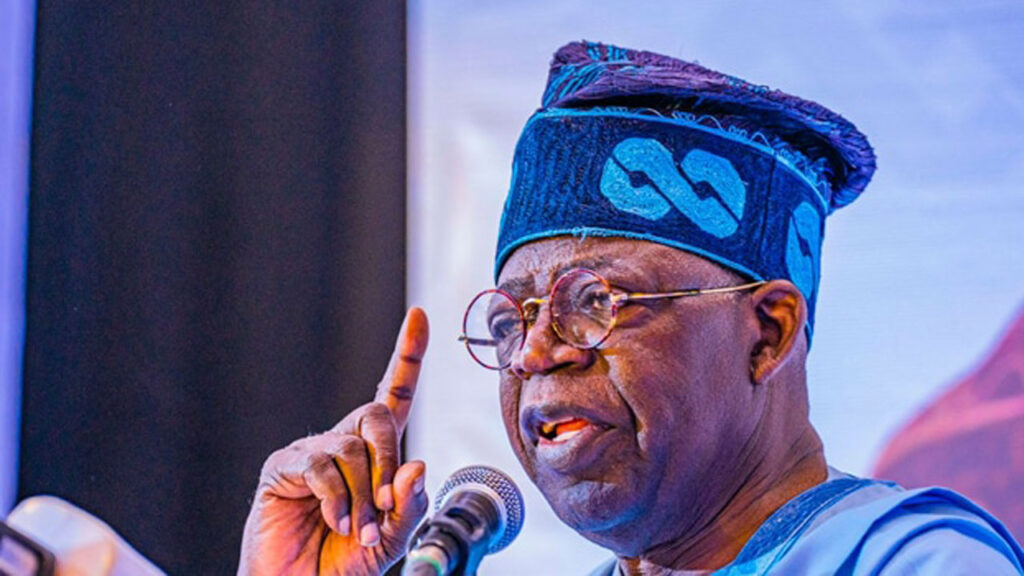President Bola Tinubu has stated that his administration is taking firm and deliberate steps to prevent, detect, and respond to all forms of violence against children.
In his 2025 National Children’s Day message, the President revealed that a comprehensive review of the Child Rights Act (2003) and the Violence Against Persons (Prohibition) Act (2015) is underway.
The aim, he said, is to broaden the scope of protection, strengthen legal provisions, address gaps in implementation, and ensure effective enforcement across the country.
Commenting on this year’s theme, “Stand Up, Speak Up: Building a Bullying-Free Generation”, Tinubu added that the government is also leveraging the Cybercrime Act, which is currently in full effect, to safeguard children from cyberbullying, exploitation, and online abuse.
“I am pleased to note that 36 states have domesticated the Child Rights Act, thus reflecting our collective resolve to protect and provide for the welfare of children. However, laws alone will not be sufficient to protect our children. We require a holistic approach where parents, teachers, caregivers, faith leaders, lawmakers, and citizens must take ownership.
READ ALSO: Adesina-led SDP denounces coalition moves to unseat Tinubu
“We are investing in other focused national systems for child protection, such as the Child Protection Information Management System (CPIMS), which is being scaled up to track and respond to cases in real time. The Ministry of Women’s Affairs is strengthening community-based child protection mechanisms, training frontline responders, and leading nationwide awareness campaigns to end harmful traditional practices”, he said.
Furthermore, Tinubu affirmed his commitment to implementing proactive measures aimed at strengthening existing initiatives that support families and communities.
He stated that this includes the development of a robust institutional framework dedicated solely to child protection and development, which, he noted, would ensure greater accountability in safeguarding the rights and well-being of every Nigerian child.
He revealed that his administration had introduced a National Policy on Safety, Security, and Violence-Free Schools, alongside the development of comprehensive guidelines for school administrators, among several other initiatives.
The President also mentioned that social-emotional learning and child safeguarding had been incorporated into teacher training programmes.
Through the National Commission for Almajiri and Out-of-School Children, he said, inclusive learning pathways were being created to ensure that every child—regardless of background—has the opportunity to learn, thrive, and succeed.
He condemned the bullying of children, emphasising the importance of fostering a culture where every child feels safe, respected, and heard, both in physical environments and online spaces.
“To be clear,” he stated, “violence, bullying, and neglect have no place in today’s Nigeria.”
President Tinubu further highlighted that globally, more than one in three children experience bullying regularly.
In Nigeria, he added, research suggests that up to 65% of school-age children have suffered some form of physical, psychological, or social aggression.
READ ALSO: Adeniyi attributes Customs ₦1.3trn revenue in Q1 to Tinubu’s reforms
He said, “This is unacceptable. A child who learns in fear cannot learn well. A child who grows in fear cannot grow right. My fellow Nigerians and our dear children, we prioritise child protection under the Renewed Hope Agenda. This includes the full implementation of Nigeria’s National Plan of Action on Ending Violence Against Children (2024–2030), which I recently launched. The plan provides a comprehensive roadmap to prevent abuse, prosecute perpetrators, and support victims, backed by robust financing and multi-sectoral coordination.
“In the care economy, we are expanding access to primary healthcare and upscaling dedicated Mother and Child Hospitals and healthcare systems across all six geopolitical zones, offering integrated maternal and child services. We are working collaboratively with subnational governments to ensure the establishment of similar facilities across the States.
“We believe every child has the right to grow up in a loving and protective environment. To ensure that children who are unable to remain in their biological homes are given the care and protection they deserve, the Federal Ministry of Women’s Affairs has developed the National Guidelines for Alternative Care for Children. These guidelines would complement the recently launched National Plan of Action on Ending Violence Against Children (EVAC) and strengthen our child protection systems.
“Through the Nutrition 774 programme and our School Feeding Scheme, we work assiduously to improve child health and cognitive development. The Nutrition 774 project aims to ensure no child in Nigeria goes hungry. Through this project, we are reaching every community, guaranteeing that children receive the necessary nutrition to thrive in their academic pursuits, creative endeavours, and overall health. A well-nourished child is well-equipped and ready to tackle the challenges of tomorrow.
“To institutionalise our commitment, the Federal Ministry of Women’s Affairs has recently established a dedicated Department of Nutrition to strengthen policy coherence, programme delivery, and coordination around child and maternal nutrition.
“We are investing in social protection tools such as the Universal Child Grant and finalising a national Child Wellbeing Index to measure progress, track gaps, and hold ourselves accountable.
READ ALSO: Tinubu mocks critics, says APC is driving Nigeria’s aspirations
“Our children’s safety cannot be solely anchored on government policies but on community vigilance. This is why I am launching a nationwide “See Something, Say Something, Do Something” campaign today, encouraging every Nigerian to become a child protection champion.
“To our beloved children: you matter. Your dreams matter. Your voices matter. No one has the right to hurt, silence, or diminish you. If you are bullied or harmed, speak up—you will be heard and protected. I call on all partners, stakeholders, and duty-bearers to sustain and deepen our collective efforts. We must embed child rights in all our budgets, plans, and policies. I commend states taking bold steps for our children’s welfare and urge those yet to act: now is the time. Our children are not just statistics—they are the heart of our nation.”



